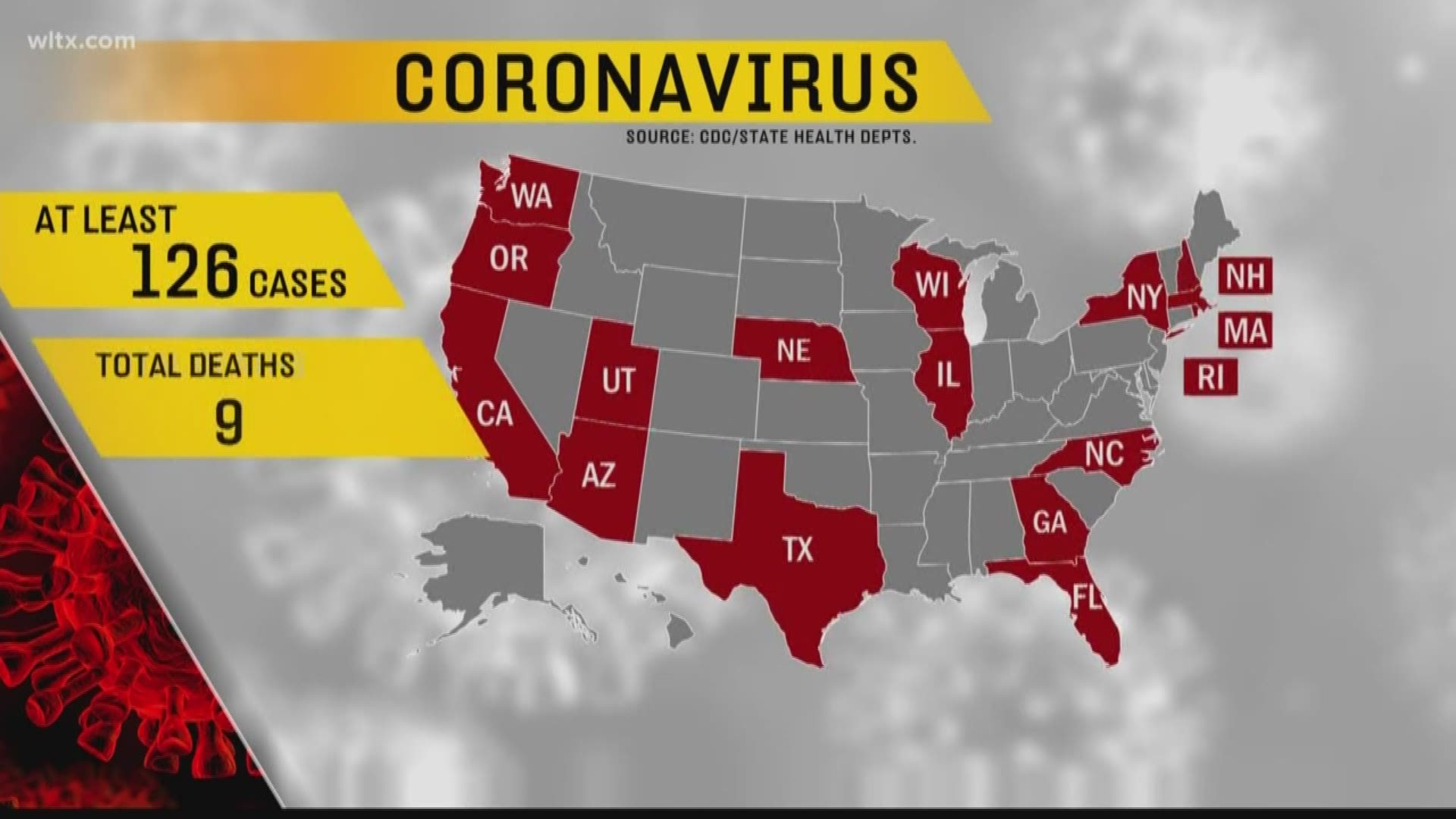COLUMBIA, S.C. — South Carolina health officials said Wednesday five people tested negative for the coronavirus but 13 others people are being monitored.
The South Carolina Department of Health and Environmental Control (DHEC) said they have completed monitoring on 49 people. So far, there have been no positive tests of coronavirus in the state.
Earlier this week, the state announced it has the ability to test at its labs. They said Monday they can handle about 100 tests a day.
DHEC has a dedicated coronavirus page on its website which we will continue to monitor and keep you informed. They've also set up a care line for people who have questions at 1-855-472-3432. Staff will answer those calls from 8 a.m. to 6 p.m. on weekdays.
What is a coronavirus?
According to the World Health Organization, coronaviruses are a large family of viruses that cause illnesses ranging from the common cold to more severe diseases including Severe Acute Respiratory Syndrome (SARS) and Middle East Respiratory Syndrome (MERS).
How did this virus get its name?
On Feb. 11, 2020, the World Health Organization announced the official name for the new coronavirus virus would be COVID-19. "CO" stands for "corona," "VI" stands for "virus," D stands for "disease" and 19 indicates the year the virus was first discovered.
Prior to this, the virus was referred to as the "2019 novel coronavirus," which means it was a new strain not previously identified in humans.
The WHO Director-General also stressed that giving a disease an official name prevents the use of other names that could be inaccurate or stigmatizing.
What are the symptoms of COVID-19?
According to the CDC, patients diagnosed with this coronavirus experience a mild to severe respiratory illness. Symptoms include fever, cough and shortness of breath. Patents with severe complications from the virus often develop pneumonia in both lungs.
How does the virus spread?
The virus is spread person-to-person. According to the CDC, spread is happening mainly between people who are in close contact (within 6 feet) of each other via respiratory droplets produced when an infected person coughs or sneezes. The droplets land on the noses and mouths of other people, who then inhale them.
The CDC says it may be possible for the virus to spread by touching a surface or object with the virus and then a person touching their mouth, nose or eyes, but this is not thought to be the main method of spread. As the virus was discovered just a few months ago, more research is required to learn more about the spread pattern of the virus.
What do I do if think I have COVID-19?
If you think you are sick and are exhibiting symptoms, the first step is to think about how sick you are, according to Dr. Brenda Braxton, who works at Adventist Health in Oregon. She says if your symptoms are mild, the best course of action is to stay home and "manage" it out.
"The concern is we have two different issues: one is the individual and one is the community," she said. "We want to avoid spreading this to the community. The last place to go to if you have a mild disease is the clinic or the emergency room.
Dr. Braxton stressed most people who contract the illness will get better without any long-term effects. "About 82% of cases tend to be mild," she said. "What we see is their symptoms diminish over five to seven days. They’re still capable of transmitting the disease. But that’s how it will play out for most people. When you look at people who have higher risk, including heart disease, diabetes, asthma and other vascular disease problems, they’re going to be at higher risk of having a more severe disease."
If you have more severe symptoms, you should contact your healthcare provider. They will be able to get more information and decide if you must be admitted to the hospital.
Avoid contact with other people, avoid going out in public and delay any travel to avoid spreading the illness.

